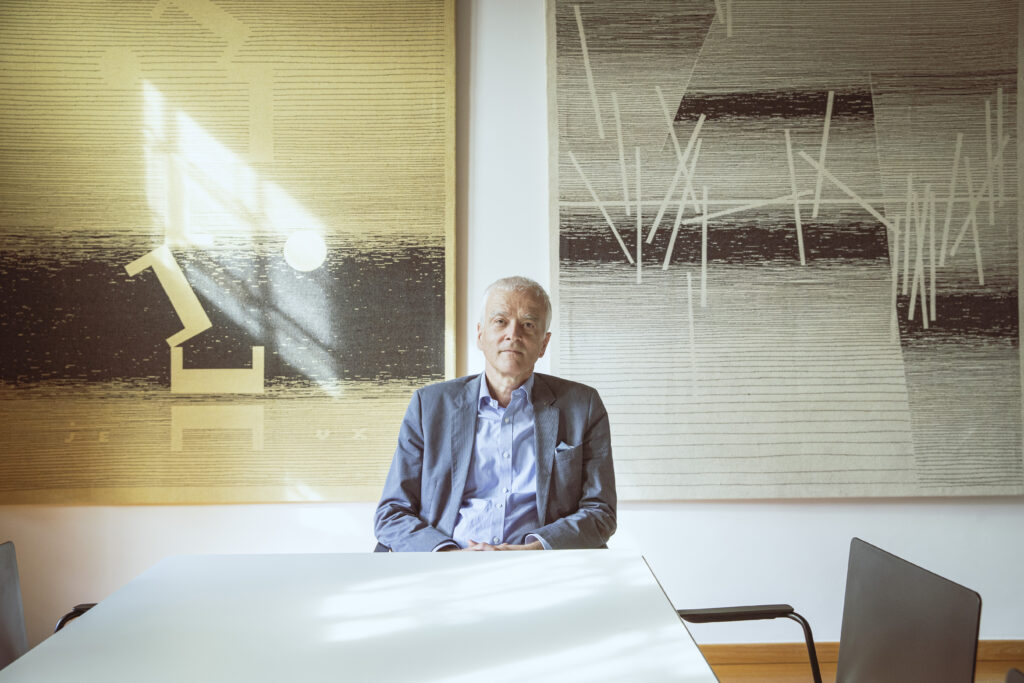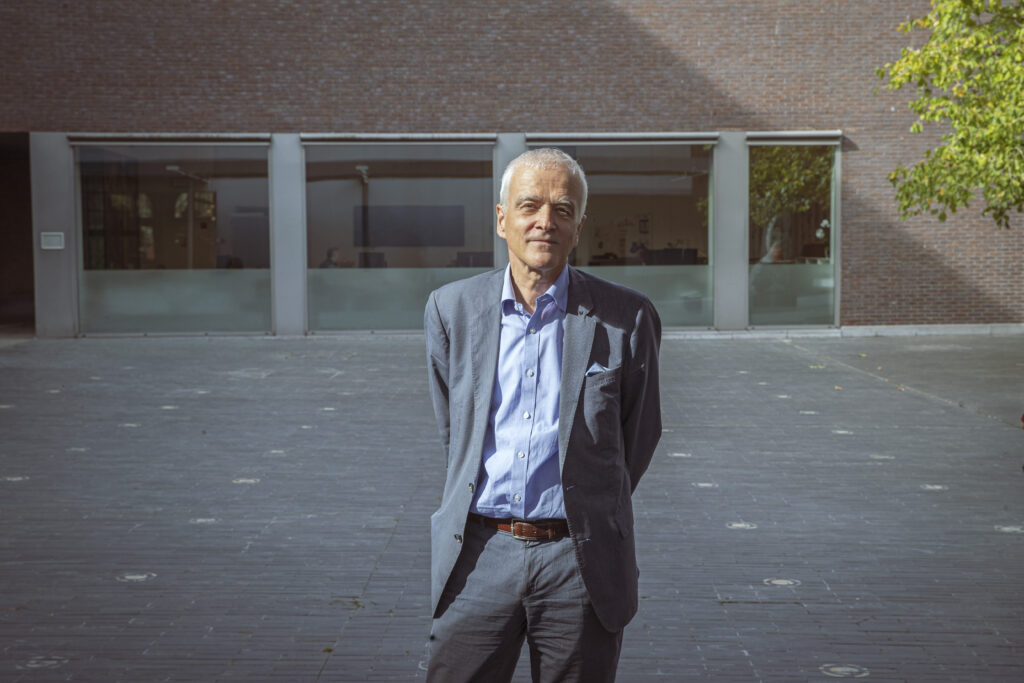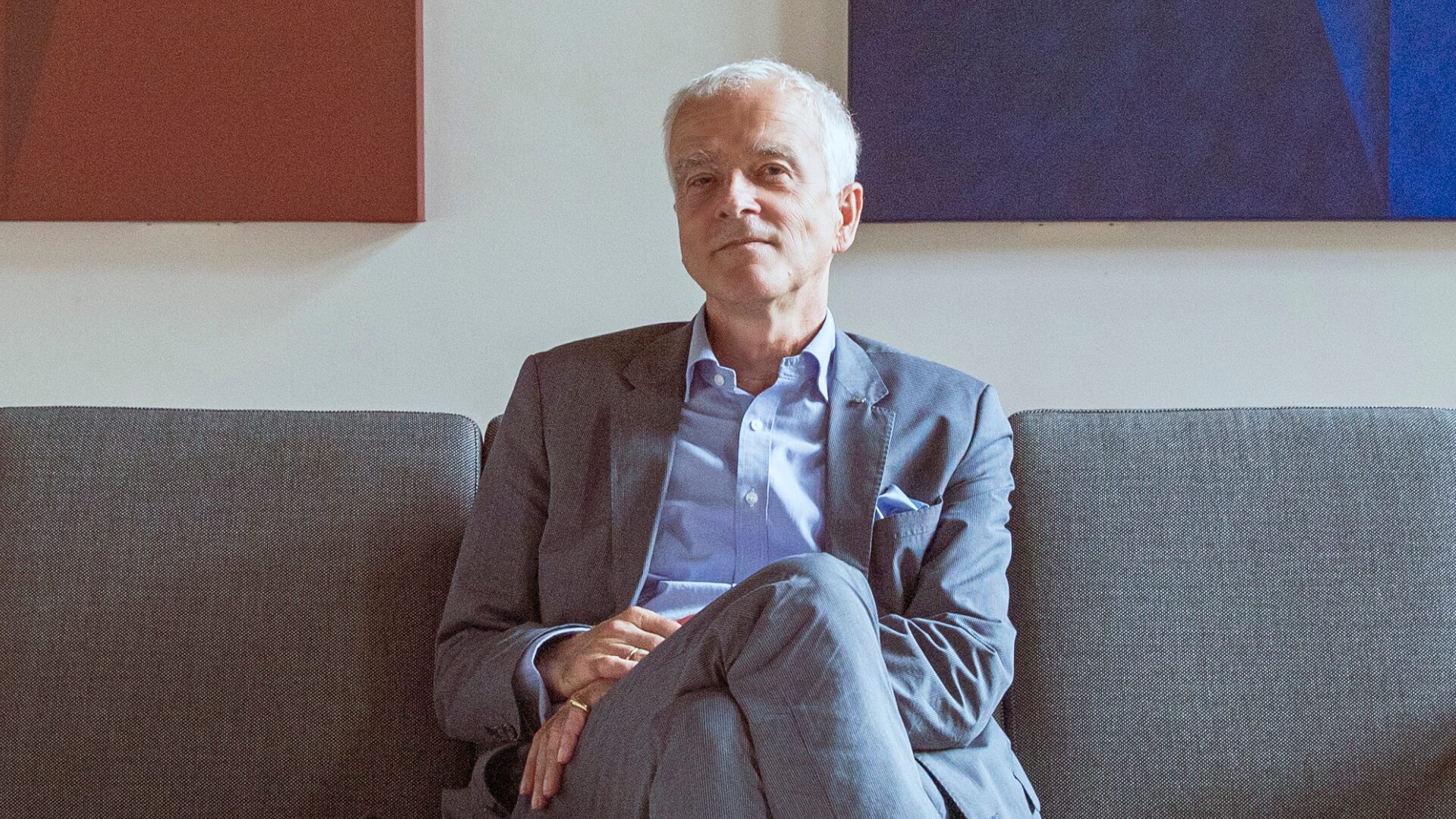Herman Van Goethem is saying goodbye as a rector on 1 September, but not before we’ve reminisced about the past eight years of his career together. Guided by an equal number of questions, he takes us on a tour of the fascinating world that is the rectorship.
You started the rectorship with certain expectations. Have those been met in the course of those eight years?
‘Eight years ago, I could not have foreseen the world would be so different today. In the first six months, I also had to explore the depth and breadth of the university, as I was relatively unprepared. The power of the word was a first surprise. What I said suddenly took on so much more weight. Many people also asked me to give the university more character. And I think I have. Together with my team, I was also able to bring about a shift of emphasis by decreasing the culture of weighing and measuring and reducing competitiveness with respect to promotions. An organisation based on trust, that’s what I’ve deliberately worked towards. We have to treat each other nicely, humanely. One of the first things I did was replace the email salutation Met de meeste hoogachting (Sincerely yours) with Met vriendelijke groet (Kind regards). This makes you more approachable. On the other hand, I had to accept that many people addressed me as “rector”. By now I’ve realised that hierarchy is very important at times. I remember the first period, starting in 2016, as being entirely fine. But then came a series of challenges and problems. The Reuzegom file, from December 2018 onwards, did enable me to make some changes towards a better conceptualisation of student hazing. The mechanisms of group violence aren’t unfamiliar to me, for one thing thanks to my experience expanding Museum Kazerne Dossin in Mechelen between 2008 and 2016. After Sanda Dia died, I hired an anthropologist to investigate student practices at UAntwerp. After two years, he delivered a report that we set to work on as a university. What it boils down to is converting a ritual of humiliation to a ritual of welcoming. That’s the essence, and other universities also took this insight on board.’
‘An organisation based on trust, that’s what I’ve deliberately worked towards. We have to treat each other nicely, humanely.’
Herman Van Goethem
‘In 2018-2019, there were also other files on my desk. The debate on decolonisation came rolling in, with students rightly pointing out that some programmes were overly based on a narrow Western focus. New, additional perspectives, that’s something you can’t be opposed to as an intellectual. I thought the internal debate with students and colleagues and with our Team Diversity and Inclusion was very enriching, also for myself. This gave a boost to our diversity policy, and in the end also served as the impetus for the elaboration of a new mission statement that was approved in 2023.
This happened at the same time as the whole climate debate. Experts at our university organised working groups bottom-up and ultimately delivered a voluminous report with a screening of the organisation and a master plan. I thought this was a great achievement, but it was also clear the follow-up would be a gargantuan task.’

‘From 2020, the rectorship became a hell of a job. The death of George Floyd in the US lit a fire under the debate on decolonisation. And then Covid arrived, which was unreal and extremely difficult, but also gave our organisation the chance to shine.
After 2022, when everything seemed to go back to normal, to flow like before, we had a fire and I was confronted with a number of tricky personnel files that required a lot of energy. And we are currently dealing with problems in Gaza. But to go back to the beginning of my answer – when I started out as a rector, there was little interest in political and societal debates at the university, but nowadays rooms reserved for those debates often end up being too small. The number of students that participate in debates is an indication of how times are changing. Then I think: wow!’
What is your personal highlight of the rectorship?
‘At this university, everything is negotiated – with intellectuals that all have their own opinions (laughs). Which is a good thing of course, but the selection of the honorary degrees for general merits was solely in my hands as the rector, as long as the rest of the Executive Board agreed. This is how I developed close ties with some very special people, including Nobel Peace Prize winner Denis Mukwege and economist Jeffrey Sachs. Being able to talk to such people really was a highlight for me.’
And the low point?
‘I could say Covid, but in a way that was also a highlight, as we handled it well in terms of policy. Everyone was on the same page. As universities, we even helped determine and change government policy. It’s moments like those when you realise you can have a deep impact on society as a rector and as a university. I could also mention the fire on Stadscampus, but that was really only a material problem. The passing of employees and students or very difficult personnel files, those were – and are – the real low points for me.’

Is there anything you would have liked to accomplish?
‘We’re a robust, stable organisation, but I dream of an even closer collaboration when it comes to innovation and valorisation, which would also have a positive effect on development in the region. Collaborations with companies, the port, the city and the culture sector have a lot of potential still. I’m happy that the team that’s taking over also sees this as a priority. I also hope our HR policy will be fleshed out even more, as an organisation is mainly built on its own people. Treating each other with appreciation and positive encouragement and improvement, those things are really crucial to me.’
‘Streamlining the administrative processes within the university would appear to me to be another important point of attention. There’s still a world to gain by improving the work processes, in combination with mutual information exchange and proper coordination.’
What do you think is typical of the University of Antwerp?
‘We’re a university in a city, with a number of metropolitan characteristics, such as diversity, innovation, creativity and entrepreneurship, with both our history and our port being important assets. You see this in all of the universities in the world. When universities are anchored in an urban region, they use that position to be driving forces of society. It’s like that all around the world, and that’s one of our strengths.’
‘The rectorship is like the Paris-Roubaix cycling race: you go as fast as you can until the very end, all the while hoping you won’t take a cobblestone to the face.’
Herman Van Goethem
Are there any daily routines you’ll miss?
‘No. There are people I’ll miss, but when it comes to work it’s very easy for me to turn the page. The rectorship is like the Paris-Roubaix cycling race. You go as fast as you can until the very end, all the while hoping you won’t take a cobblestone to the face (laughs). I’m actually a homebody and it’s in my nature to write. I’m planning to author a few more books and I’m talking to FOMU about an exhibition on
19th-century photography. More time for the family, travelling every now and then, trimming my rose bush and changing my grandchildren’s nappies (laughs).’
Does the university have anything in store for you or vice versa?
‘I would love to be involved in Art on Campus. That’s a theme close to my heart. I’ve also co-shaped the university’s archive policy and I would like to contribute to collection building at the university as well. In another life, I might like to have become an interior designer. Or maybe I would have ended up running a shop on Kloosterstraat. Yes, that’s also a possibility (laughs).’
What do you wish for your successor?
‘Loyal and pleasant staff members, because that’s crucial. A rector must be able to rely on their advice, and within a team everyone should be given ample space to disagree. That’s very important, because you’re in a position where people are inclined to say what they think you want to hear. Given the level at which you are doing this job, there’s also the danger you’re insufficiently aware of what’s happening on the work floor. That being said, Herwig has tons of administrative experience as well as a lot of knowledge of the work floor. And he has an excellent policy team, so things are looking good all around. Long live team Herwig, I’d say. I wish them and everyone else at the University of Antwerp all the best.’


